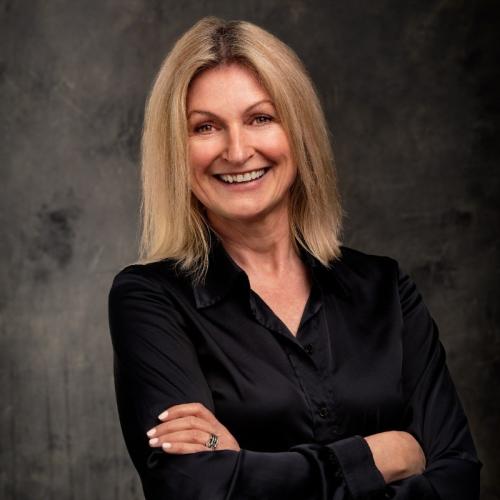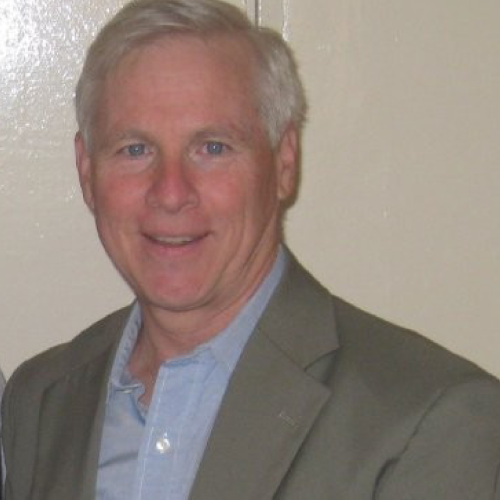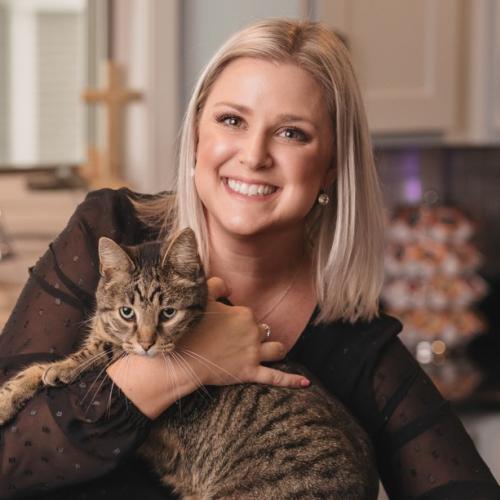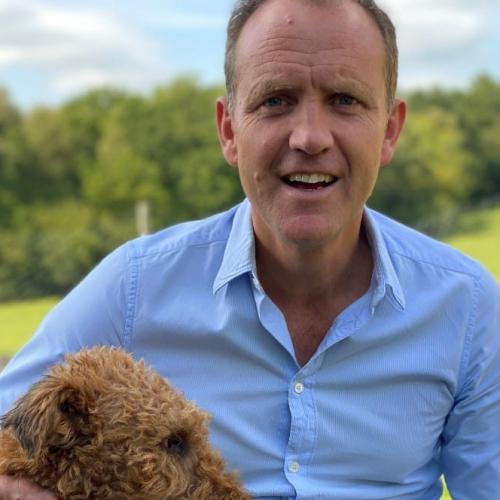Can you tell us about yourself and the story behind Torigen?
My name is Ashley Kalinauskas I’m the founder and CEO, and the idea for Torigen came from my graduate research at the University of Notre Dame. The professor that I worked alongside had developed a way of creating personalized cancer vaccines utilizing a portion of the patient’s surgically resected tumor.
tumors become the antigen backbone for the creation of an autologous cancer vaccine
That tumors become the antigen backbone for the creation of an autologous cancer vaccine. We had patents, publications, and strong data. What we decided to do was, instead of thinking and focusing on the human market, to think critically about the veterinary market – more specifically dogs, cats, and horses after a cancer diagnosis.
Up to 6 million dogs each year are diagnosed with cancer, and so few go onward to get treated with chemotherapy or radiation therapy. We thought this would be an amazing market for us to spearhead initially.
We have the product available for sale in the United States and work with about 500 veterinary clinics nationwide. For us, it’s about being able to grow that product and adoption, but we’re also focused on developing a pipeline of additional therapeutics. So, we have a second version of our vaccine that is in safety testing now.
We’ve also partnered with human oncology companies to enlighten some novel assets for the veterinary market. We’ve chosen the animal health market because of the overall cost associated, the clinical development of the therapies, and for wanting to be able to make a difference faster.
What would you say were the biggest stresses you feel as a founder?
Everything. I truly love the animal health industry, and I love the connections that our team and our company have been able to form within the industry. Everyone is helpful and collaborative, but I would say that one of the biggest stressors is financing and raising capital.
Of course, human investment companies for human biotech are a dime a dozen. But when you focus on animal health, they tend to see that as a niche and not as much of a widespread opportunity to come to fruition. We’ve seen so many successful animal health companies get acquired by large players, but there are not that many of them and you really must fit, lock and key nicely into their acquisition strategy. Financing is also one of the stressors that every early-stage company, including ours, deals with.
How do you measure success?
The adoption of our personalized cancer vaccine in the veterinary market is a big metric for us, as well as the revenue associated with that. Also raising capital is another as building out our pipeline. It’s about understanding the future potential of some of the assets that we’re working on through the de-risking phase and moving into a larger clinical phase as well.
For me, it is ending this year on a good revenue trajectory, as well as the strong asset pipeline that we’ve brought in will be amazing. There’s a lot to do.
Have there been any pivot points in the company’s lifetime?
One of the most interesting pivots is one that we’re coming back around to. Initially, when we launched the business for our personalized cancer vaccine, we were thinking that it could be a product that could be made within the veterinary practice itself. It started as a kit that we would provide to veterinary clinics to make the therapy in-office.
We decided to pivot away from that and go to a model where we manufacture the vaccine ourselves to have more control over the environment and product quality control. However, we believe that internationally, the kit could be positioned as a successful product.
We initially pivoted away from the kit and now we’re pivoting back to the kit for international markets, and we’re excited about it.
Were there any moments when you thought it was all over?
There are plenty of times. A startup company is a rollercoaster. It’s the highest of highs and the lowest of lows. You must find ways to weather that storm because it keeps coming and over time you become more resilient to those.
At times it feels like the whole world is crashing down, but it comes down to every business having problems. You need to have a solution and a market; that’s what we had. By resting on our convictions of knowing so many dogs have untreated cancer and us having personalized immunotherapy that can help. We have a market that can support this.
The hardest part was raising the initial capital to get this up and running.
The hardest part was raising the initial capital to get this up and running. Then, once that happened, everything started falling into place. The team, drive, manufacturing, marketing; all those pieces started to come together and that’s how a business is formed.
Can you tell me more about your experience with fundraising?
The first round is always the hardest. We raised it from our team. My former professor was one of the first investors and the University of Notre Dame. The University of Connecticut and Connecticut Innovations were our initial investors as well. We got off the ground by focusing on university and state-based funding.
Hopefully, by the next couple of weeks, we’ll be able to announce the closing of a significant round for us. We started this process in August of last year. We’ve been raising money consecutively for over a year now and I’m excited to finally see the end in sight.
By starting as early as we did, we still have the runway, and it allowed us to do two closes of the round. We made connections with our investors this time last year through the investor network.
What advice would you give other founders in the field?
I think that it’s about forming great connections and being able to build on those. You’re not alone. You’re walking in the footsteps that someone else forged already. Being able to rely on mentorship and advice can transform where you’re going.
Running a startup company is not easy by any means, regardless of the industry. Having strong mentors, both within the industry and outside of it is extremely important to facilitate growth.
I always use the rule of threes. If someone tells you something you might not want to hear, go to another two people. If those two people say the same thing, then you have to change your perspective
You should have multiple pieces of advice to bounce around and understand whether someone is saying the truth and if other people have the same opinion. We all hear the horror stories of the Silicon Valley founders so focused on always being right. Unfortunately, that’s typically not how this works. You have to go out and talk to your customers and mentors in the industry. You have to be able to take advice, leave advice and take the next step forward as you see fit.
I always use the rule of threes. If someone tells you something you might not want to hear, go to another two people. If those two people say the same thing, then you have to change your perspective on it, which is fine.
Another thing that I found has been helpful for me is I’m part of a founder therapy group called “Founders Without Burnout.”
We are all CEOs of venture-backed companies and we come together – in something industry agnostic – to talk about some of the challenges we’re facing daily, weekly, or monthly basis.
It’s funny because it doesn’t matter what industry we are part of, we have the same problems. Problems with employees, fundraising, investors, and preparing for the board. We get to understand what our next steps are. It’s also a way of feeling support because this is a lonely journey.
In an early-stage business you have to be extremely resilient, but you also have to ask for help when you need it. I think it comes full circle. We talk about this in our group; we are there because we want to understand and recognize we want to be the best version of ourselves, and we want to build the best possible company.
I like looking at other women who have laid some amazing groundwork. Linda Rhodes with Aratana, Denise Bevers with Kindred, and Kristin Peck now with Zoetis.
Which other founders and leaders in the market inspire you?
I like looking at other women who have laid some amazing groundwork. Linda Rhodes with Aratana, Denise Bevers with Kindred, and Kristin Peck now with Zoetis. Those are three women that I look up to in terms of how they’ve been able to lay the foundation for women moving forward into executive-level roles at some of the large animal health companies.
I would love to build one of the next large animal health companies and, you know, be able to see what the trajectory and future hold, not only for this business but for my future growth potential as well.
What changes would you like to see in the animal health market?
I would always love to see more women around the boardroom table and be able to support each other with growth. I think we’re such a unique group in the animal health industry, but we’re all focused on being able to help each other. Those founders are not my competitors and if I can provide them – or an investor that might have said no to us – with a nugget of information and change their minds to a yes, then it's worth it. We’re an open book to help each order to make this industry grow and succeed.
Of course, I would love to see more funding come the way for animal health. To do that, we’d need the big four and the second-tier large animal health companies to start making investments or acquiring earlier-stage companies.
It can help fuel investor returns, so you’re able to make bets on early-stage products and would be able to see them advance in the market. The more acquisitions that happen, the more funding that could be further fueled into more early-stage companies that you can build out your asset portfolio pipeline a lot easier and better.
In the human medical device sector, some of the major device companies are focused on providing investor returns as well, because they know if they provide it, they can know if one product is not as good of fuel for future revenue, while another one of them could be a blockbuster.
Lastly, veterinarian and vet clinics have gone through massive consolidation lately, which is phenomenal for the industry but it’s also hard and challenging to sell into a veterinary clinic. Finding different or more innovative sales channels could be an interesting opportunity for the industry.





































